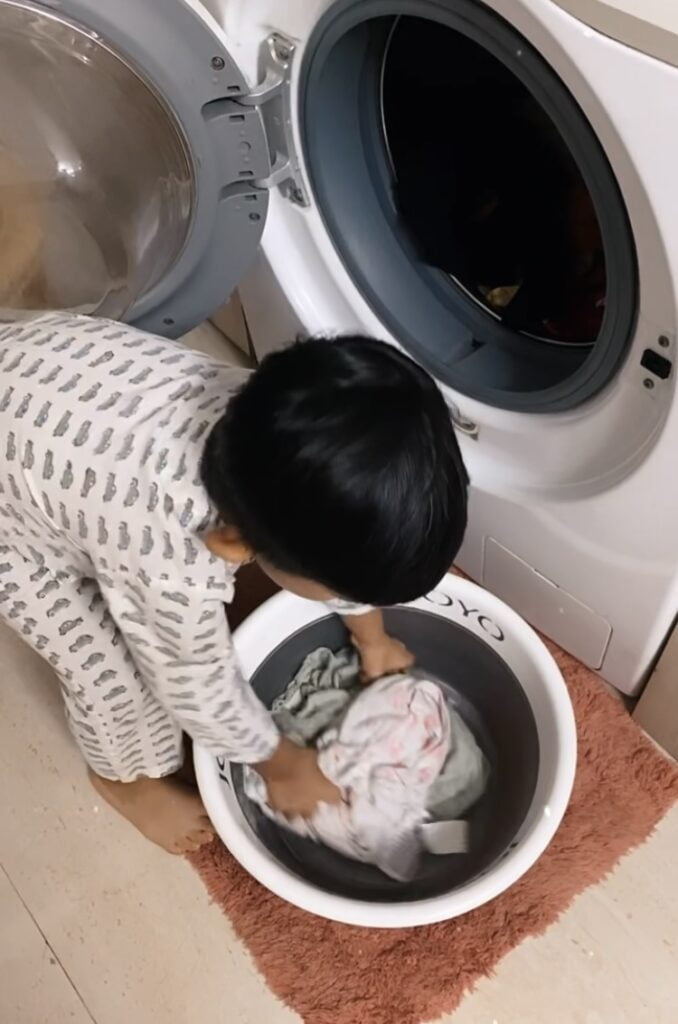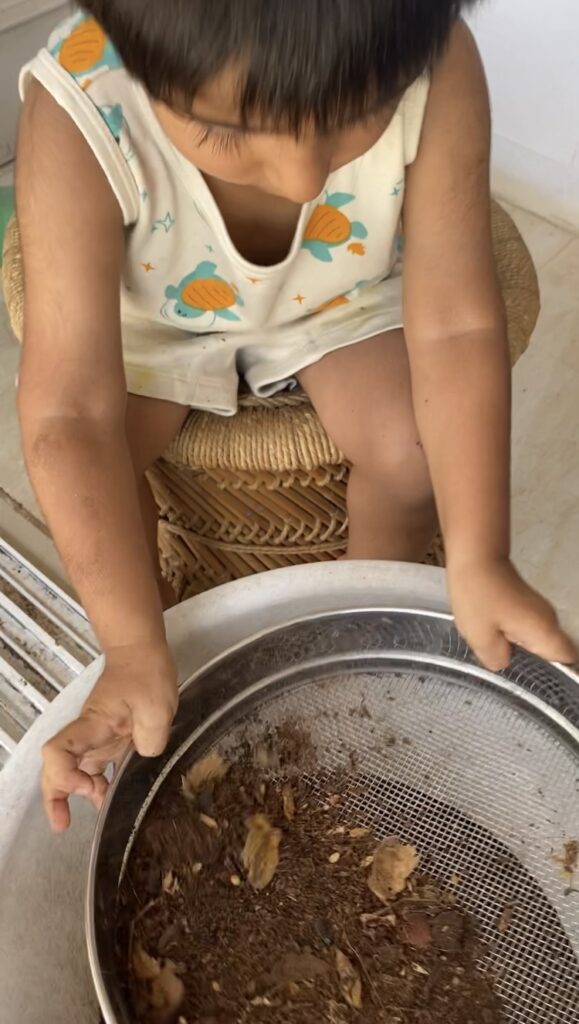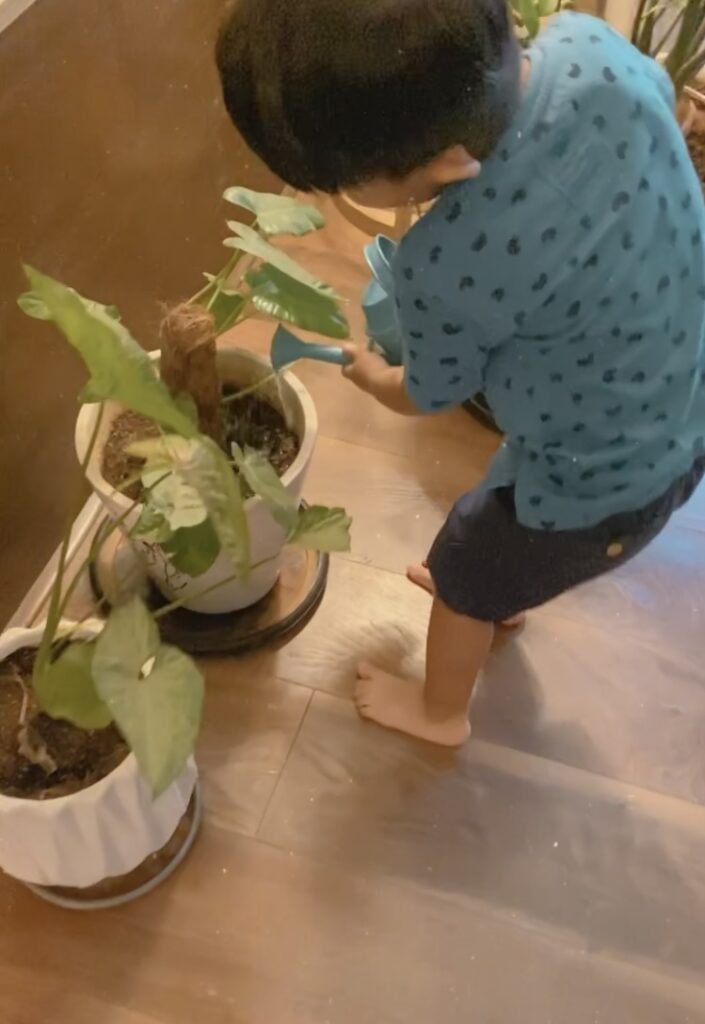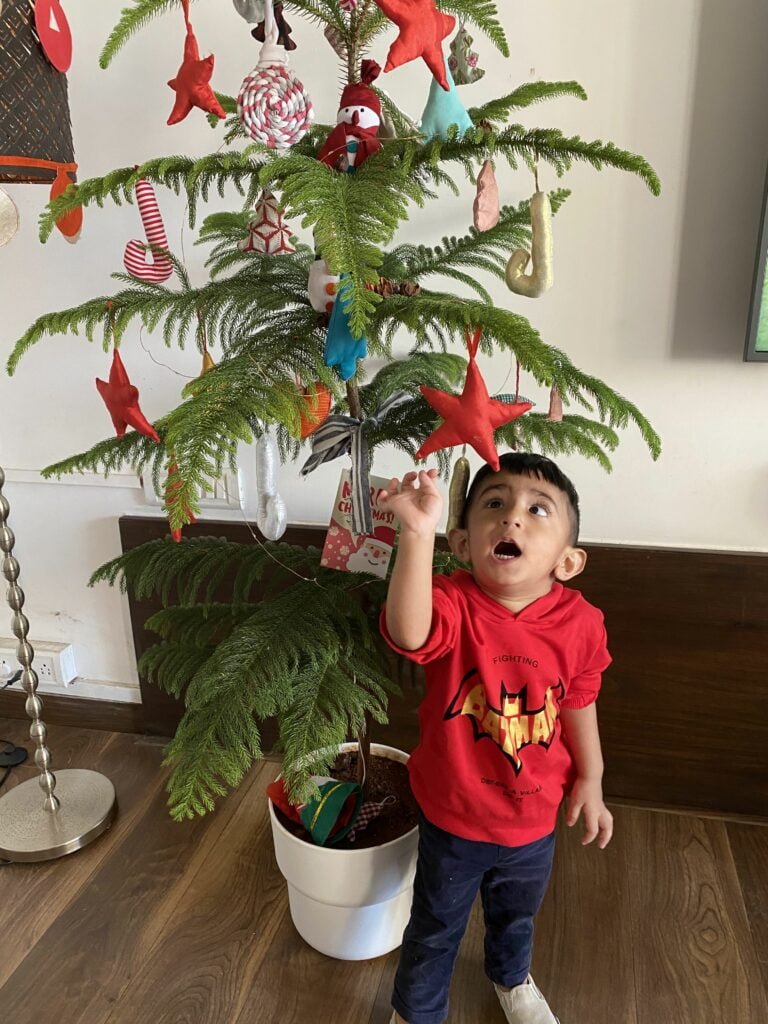Editor’s Note: FII’s #MoodOfTheMonth for September, 2021 is Parenthood. We invite submissions on the many layers of being parents, having parents and navigating the social norms of parenting throughout the month. If you’d like to contribute, kindly email your articles to sukanya@feminisminindia.com
Sustainability as a concept can mean different things to different people. To us, as a family, it means being conscious about our consumption, about the resources we use and ensuring that we don’t waste anything unnecessarily.
We’ve been following this sort of lifestyle for over two years now, and the main reason for doing so has been our son. We all know where the world is headed in terms of climate change and damage to the environment. It’s going to get more and more difficult for us to survive in the years to come. As parents, we all want to do everything we can to give our children a good life. And so, if we can’t give them a healthy environment to live in, what good is anything else?
As we became more aware about these issues, we started taking steps to move towards a very low waste lifestyle. To a point where we don’t have a dustbin in our house, and nothing gets trashed. We buy only what we need and try to buy everything from Indian sustainable brands.
As my son is growing up (he’s 2.5 years old) and becoming aware of what’s happening around him, we’ve been involving him in everything we do, so that this way of living comes naturally to him. Kids are very curious at this age and we decided to make everything fun, not just for sustainability related activities, but in all household chores! From dusting, to helping with cooking, cleaning up, washing clothes, changing bed linen – he wants to do everything!

We also keep talking to him about what we do and how we do things as part of normal conversation. For instance, he knows that we have two big bags where we collect all our dry waste (because he sees that happening) and I keep telling him that, that will go for recycling. He once asked me what recycling was and I just gave him a simple explanation – a place where new things are made from old. And he understood.
We’ve never considered him ‘too young’ to be involved in anything. The moment you say, ‘Abir can you help me with xyz, he will drop everything and come running!’ He loves ‘helping out’.
Also read: Small Changes To Minimise Damage: A Personal Account Of Sustainable Choices
When he was much younger, I would make him sit next to me whenever I harvested my compost. And once he started speaking (and asking questions!), he would ask me what I was doing, what happened in the compost bin etc. Now, he knows the process and loves putting all our wet waste in the composter everyday!

Similarly with plants, he loves to sit and help while I re-pot a plant and loves watering the plants as well. Whenever I do any DIY, I involve him in that, even if it’s just holding or passing something, he really feels that he’s helping and once the task is completed, he has this sense of accomplishment which is so endearing!

We have also been very conscious of not buying too many things for him. Most of his clothes, shoes, toys and books are hand-me-downs (thanks to friends with older kids). We want him to be happy with hand-me-downs. We always tell him ‘Xyz sent this for you’ so he knows it belonged to someone else and now he’s using it. Tip – if you don’t have people with older kids who can pass down their stuff, there are a lot of sites that offer preloved products. This saves money as well as the planet!
We use very few personal care products for him and whatever we use is from sustainable Indian brands, in sustainable packaging. We don’t use any disposable products in our house and carry our reusables with us wherever we go – a cloth napkin, steel straws, cutlery etc. And so when we are out of the house, he will not reach out for a paper napkin because he knows he has his own and has to use that. It just comes naturally to him.
In terms of food, we’ve never used any baby or packaged/processed food for him. He’s eaten what we ate from the beginning and we never felt the need to add anything else to his diet. We’ve switched to organic groceries, fruits, and vegetables that we get locally from a zero-waste store. So, there’s no packaging waste.
We also celebrate festivals in a low waste manner. For Christmas, we got a real Christmas tree and got ornaments made from cloth scraps/textile waste so that he enjoys the holiday but also knows that the tree is still there, and if he looks after it, it’ll be with us for a long time. For Diwali, we got some fresh flowers, got mithai from a local shop in our own containers and used leftover cooking oil to light diyas (and of course, no crackers). For Rakshabandhan, we got rakhis made of fabric waste.

Apart from this, he also spends a few hours every day playing outdoors, rolling in mud, helping our building gardeners, collecting earthworms and what not! He has no fear of insects or any living being for that matter! This also makes him compassionate and respect nature. We think that’s really important and something we are really happy he’s imbibed so well.
Kids are super smart! You don’t really need to lecture them about anything. Just talk to them normally, respect them for who they are and involve them in whatever you do. Let them observe, explain why you do what you do, answer all their questions and they will understand.
Also read: Plants, Pandemic And Children: Discovering The Joys Of Gardening With A Six Year Old
Sonika is a media professional, mother of a 2 year old boy and a sustainability enthusiast. She embarked on a journey towards a sustainable and low waste life after her son was born. Through her Instagram account, she shares her experiences, tips and tricks to help and encourage as many people as possible to shift towards a more sustainable way of life.
Featured Image: Ritika Banerjee for Feminism in India
About the author(s)
Sonika is a media professional, mother of a 2 year old boy and a sustainability enthusiast. She embarked on a journey towards a sustainable and low waste life after her son was born. Through her Instagram account, she shares her experiences, tips and tricks to help and encourage as many people as possible to shift towards a more sustainable way of life.




